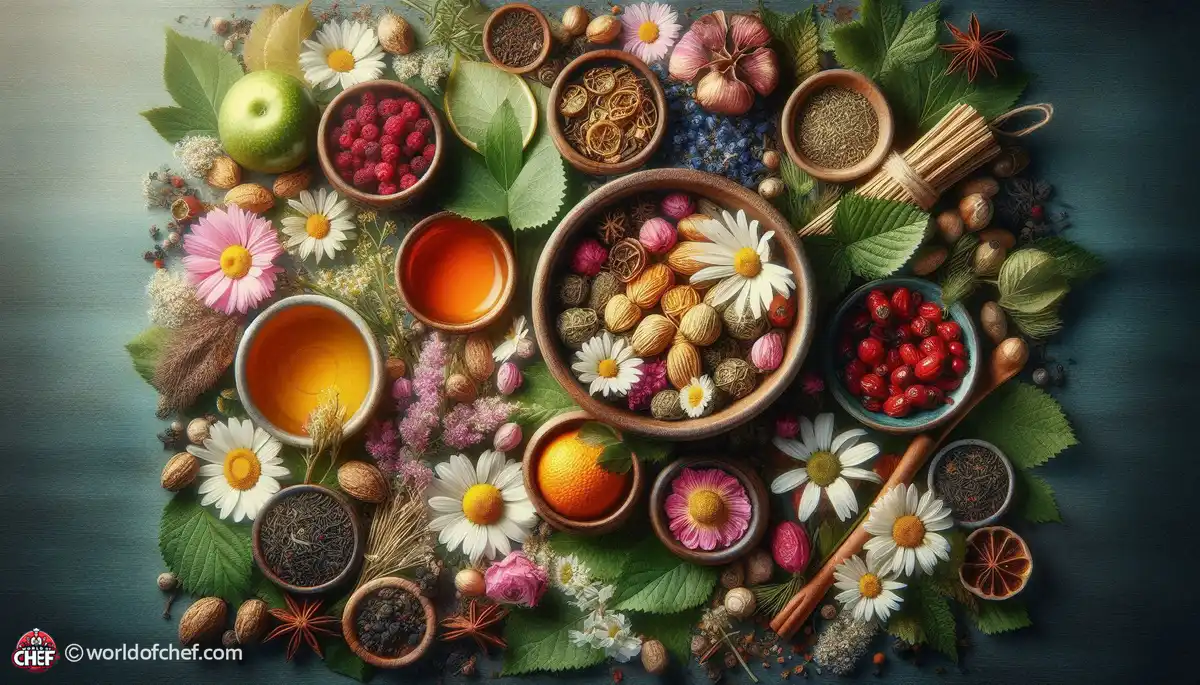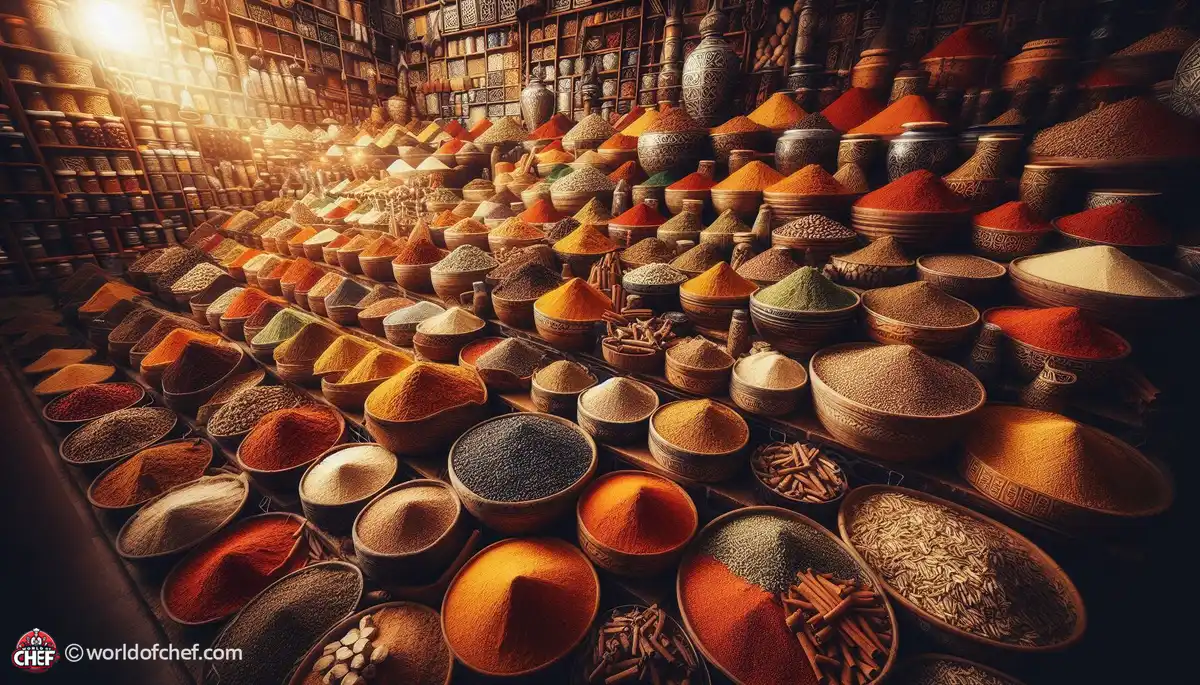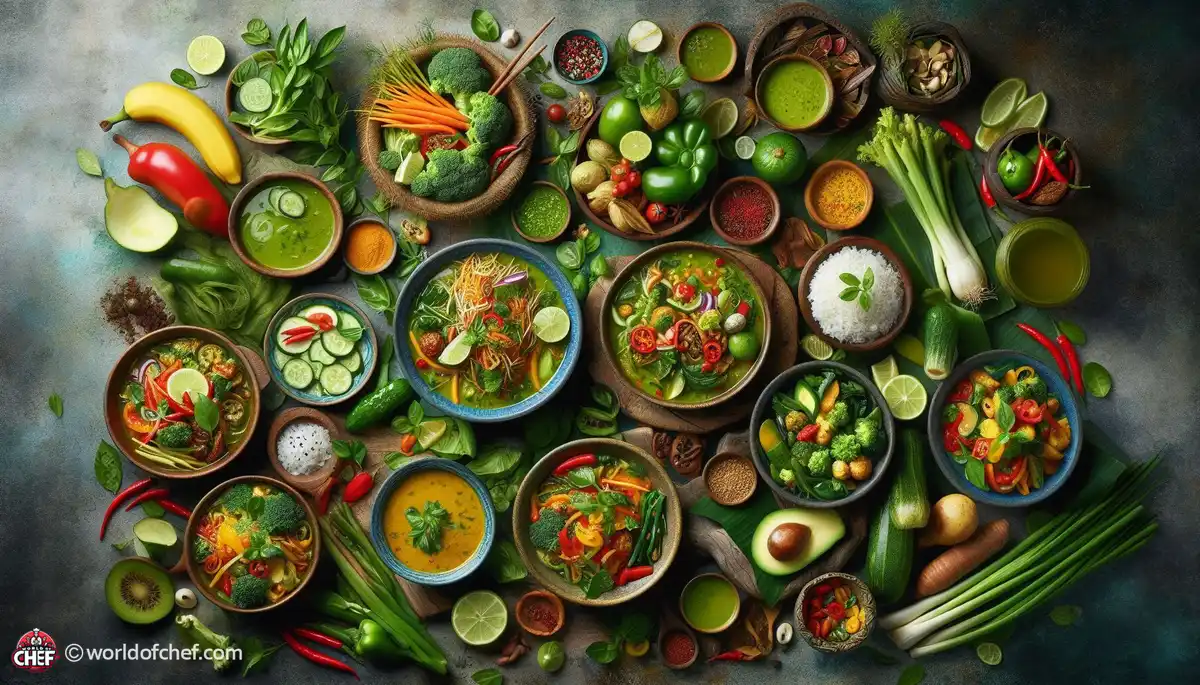
Moroccan Ramadan Specialties: Recipes and Traditions
Kaylee McEwen - Oct 5, 2024 - 8 min read


Russian herbal teas, deeply rooted in the country's rich cultural heritage, have been cherished for centuries. Their origins trace back to ancient times when traditional healers utilized herbs to concoct brews that not only delighted the senses but also offered therapeutic benefits. This tradition evolved over generations, blending indigenous plants with influences from neighboring regions like China and Mongolia. The result? A diverse array of herbal infusions that cater to various health needs and culinary preferences.
In Russian culture, tea drinking is more than just a daily ritual; it's a social custom that fosters connections and hospitality. Whether shared among family members, friends, or guests, the act of brewing and serving tea holds significant cultural importance. Traditionally, Russian herbal teas are prepared in a samovar, a decorative metal urn that keeps the brew warm for extended periods. This communal practice encourages conversations, fosters camaraderie, and provides a moment of respite from the hustle and bustle of everyday life.
What sets Russian herbal teas apart is their diverse range of ingredients, sourced from both local flora and international trade routes. From soothing chamomile to invigorating mint and tangy rosehip, each herb contributes its unique flavor profile and Health Benefits to the brew. Some teas feature a single herb, allowing its distinct qualities to shine, while others blend multiple ingredients for a harmonious blend of flavors and properties. Exploring these traditional ingredients is like embarking on a botanical journey through the Russian countryside.
Brewing the perfect cup of Russian herbal tea is an art form that requires precision and care. While the process may vary depending on the specific herbs used, certain principles remain consistent. Generally, the herbs are steeped in hot water for a specified duration to extract their flavors and medicinal properties fully. The resulting infusion is then served hot, often accompanied by honey, lemon, or berries to enhance the taste. Whether enjoyed in a cozy kitchen or a bustling tea room, the art of brewing and serving tea is a cherished tradition in Russian culture.
Many of the herbs commonly used in Russian herbal teas boast immune-boosting properties and anti-inflammatory effects. Ingredients like echinacea, elderberry, and Siberian ginseng are revered for their ability to strengthen the body's natural defenses and ward off infections. Regular consumption of these teas may help reduce the risk of common illnesses like colds and flu, making them a valuable addition to one's wellness routine, especially during the colder months.
In addition to promoting immunity, Russian herbal teas are prized for their digestive benefits. Ingredients like peppermint, fennel, and chamomile have long been used to soothe upset stomachs, alleviate indigestion, and relieve gastrointestinal discomfort. Whether sipped after a heavy meal or enjoyed as a daily tonic, these teas can help calm the digestive system and promote overall gut health. Plus, their gentle nature makes them suitable for individuals with sensitive stomachs or digestive issues.
In today's fast-paced world, finding moments of calm and relaxation is essential for maintaining mental well-being. Russian herbal teas offer a natural solution, thanks to their calming and stress-relieving properties. Herbs like lavender, lemon balm, and valerian root are renowned for their ability to soothe the nerves, ease tension, and promote restful sleep. Incorporating these teas into your daily routine can help create a sense of tranquility and balance amidst life's challenges.
Many of the herbs found in Russian herbal teas are rich in antioxidants, compounds that help neutralize harmful free radicals and protect the body from oxidative stress. Ingredients like hibiscus, nettle, and dandelion root are particularly abundant in these beneficial compounds, making them valuable allies in the fight against aging and chronic disease. By regularly consuming antioxidant-rich teas, you can support Cellular Health, enhance detoxification processes, and maintain a youthful glow from the inside out.
With their myriad health benefits and delicious flavors, Russian herbal teas deserve a place in every tea lover's pantry. Whether you prefer a soothing cup before bedtime or a refreshing pick-me-up in the afternoon, there's a herbal blend to suit every mood and occasion. Experiment with different ingredients, steeping times, and serving methods to discover your perfect brew. And don't forget to share the experience with loved ones, keeping the cherished tradition of tea drinking alive for generations to come.
While Russian herbal teas share a common heritage, regional variations abound, reflecting the diverse landscapes and cultural influences across the country. From the fragrant meadows of the Caucasus to the wild forests of Siberia, each region boasts its unique blend of indigenous herbs and traditional customs. Exploring these regional varieties is not only a culinary adventure but also an opportunity to connect with the rich tapestry of Russian culture and history.
In today's fast-paced society, traditional practices like tea drinking risk being overshadowed by convenience and commercialism. However, preserving the heritage of Russian herbal teas is vital for maintaining a connection to the past and preserving the wisdom of generations past. By supporting local producers, embracing sustainable farming practices, and sharing knowledge with future generations, we can ensure that this timeless tradition continues to thrive for years to come. After all, the health benefits of these herbal brews are not just physical but also cultural and spiritual, enriching our lives in more ways than one.

Kaylee McEwen - Oct 5, 2024 - 8 min read

Joel Spurgeon - Oct 5, 2024 - 7 min read

Aaliyah Martini - Oct 5, 2024 - 6 min read

Jesse Brownell - Oct 5, 2024 - 7 min read